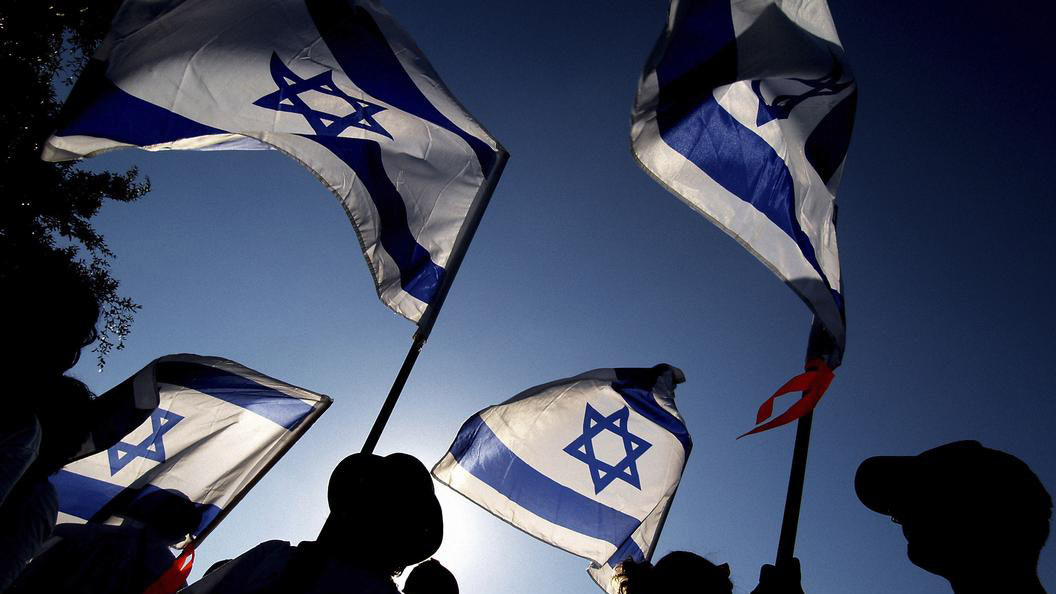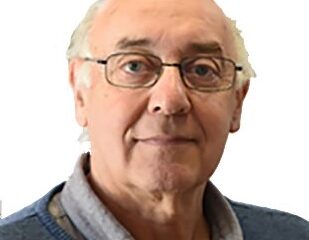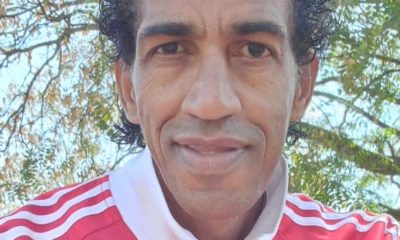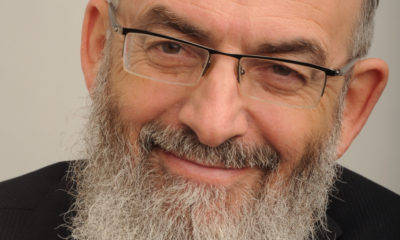
Question and Answer

The many forms of Zionism
Published
3 years agoon
Zionism, the term that has been bandied around by the anti-Israel lobby, isn’t a uniform approach to Israel. It has many forms resulting in differences even between individuals with similar political views, but it stands on the belief in the need for Israel, a Jewish state.
The SA Jewish Report questioned two Zionists to show how different their views are.
Gavin Rome
1. What do you believe Zionism is?
Zionism was an ideology that returned historical agency to the Jewish people and led to the establishment of a Jewish state in the land of Israel. Today, Zionism’s core principle is that it’s better for the Jewish people to shape their lives in the state of Israel than to remain scattered minorities among the nation states of the world.
2. How do you interpret what happened from 9 to 21 May in Israel?
An avoidable tragic paragraph in the annals of the Jewish/Arab-Palestinian conflict.
3. Whose fault is it and why?
Largely, the immediate “fault” lies with Hamas and its eliminationist and expulsionist “river to the sea” ideology. There are nevertheless underlying fault lines for which both sides are to blame. However, the spark for this latest awful episode was Hamas’s cynical and missile firing exploitation of tensions in East Jerusalem.
4. What do you think about the way Israel dealt with it?
Once Hamas had commenced its bomb-all-of-Israel missile campaign, Israel reacted responsibly in fulfilling the basic responsibilities of a nation state, namely to protect its citizens from harm. I’m, however, critical of the ultra-nationalist East Jerusalem settlement project and the government’s support for the establishment of belligerent settler enclaves in Arab neighbourhoods of East Jerusalem.
5. Who do you support (politically) in Israel and why?
Any of Labour, Meretz, or Yesh Atid. Each of these parties would better protect the institutions of democracy (a free press, the rule of law, respect for the constitutional role of the Supreme Court, and tolerance for dissent), which have been subjected to cynical, populist subversion by the past decade’s governing coalitions.
6. How do you feel about the occupied territories or Judea and Samaria?
I’ve been a lifelong opponent of the West Bank settlement project. I remain of the view that civilian settlement of the West Bank has been, to use the phrase of historian Barbara Tuchman, nothing less than “the march of folly”.
There should, nonetheless, be no withdrawal if this would lead to the establishment of a hostile armed entity in the West Bank, as would seem to be the case for the foreseeable future.
7. What do you believe should happen to solve this conflict between Israel and the Palestinians?
A good time out. No grand agreements or accords, but a defined period of time in which both sides do their utmost to avoid antagonising the other. As to how to achieve such a base, I’m sadly at a loss but I’m sure there are those better qualified than I am who could formulate a realistic proposed framework.
8. Do you believe the Israeli government is doing enough to solve this conflict? What should it do?
No. Cessation of settlement projects in the West Bank would be the first step. Each new settlement makes the only possible route to the end of the conflict (namely two separate states existing side-by-side) increasingly remote.
9. Do you support a two-state solution, and what does that mean to you? If you don’t, what do you support?
I support a two-state solution. This would entail both parties ultimately one day making difficult and anguishing compromises. In contrast, a binational state in which each community has semi-autonomous and equal rights within a federation of all of its citizens is a romantic utopia which appears to be desired neither by the Jewish nor the Palestinian polities. Also and in contrast, a Jewish state in which the Arab residents of the West Bank aren’t citizens and thus don’t have the right to vote would, in my view, amount to a perversion of the Zionist idea.
10. How do you feel about Benjamin Netanyahu and his way of governing?
He has undoubtably achieved much: the liberalisation of the Israeli economy, many years of uninterrupted economic growth, and accords with Arab states. Unfortunately, his exploitation of populist tools has had the effect of weakening Israeli democracy.
11. If you could do two things to improve Israel, what would you do?
I would rather not answer this question. Not living in Israel, I’m unqualified to address the practicalities which this question implies.
12. Who do you believe should be the next prime minister of Israel and why?
I don’t “believe” in any person or politician. Having said that, I have been impressed by Yair Lapid’s non-confrontational and quietly respectful leadership style.
- Gavin Rome is senior counsel at the Johannesburg Bar. He has acted as a judge of the high court on several occasions.
Joni Kowensky
1. What do you believe Zionism is?
A conviction that Jews have an archaeologically visible, ancient connection to Israel, with Judea (where Jews originated) being the epicentre for thousands of years. Israel has a right to exist within safe borders, defend herself, and to be a religious Jewish state (like its Muslim neighbours). Zionism isn’t political, its borders and governance is political, but the principle isn’t.
2. How do you interpret what happened from 9 to 21 May in Israel?
Israel showed extreme restraint in waiting for more than 500 rockets to be fired before retaliating. The Iron Dome saved thousands of people, and Hamas used larger missiles and barrages than before. Israel avoided civilian casualties in densely populated civilian areas, hitting more than 1 500 targets with less than 250 deaths reported by Hamas. This number includes Hamas’s own inflicted deaths from its 680 missiles that misfired, committing double war crimes in firing at civilians from its own dense civilian areas. One such situation killed a Gazan family of eight. Israel continues to avoid civilian casualties, while Hamas uses civilian casualties as its modus operandi, helping Hamas to win the world over. Israel needs to prepare better in terms of social media and education.
3. Whose fault is it, and why?
Mahmoud Abbas has been in charge of Fatah/the Palestine Liberation Organization since Yasser Arafat. Prior to elections, realising he was losing, he arrested his opposition and announced that due to riots, elections were cancelled. Days later, his supporters stormed the Temple Mount, triggering incidents of violence throughout Israel, falsely using a private rental dispute in Sheik Jarrah as a pretext. Hamas saw an opportunity to fire rockets into Israel, unprovoked, as it does every few years.
4. What do you think about how Israel dealt with it?
Israel needs to focus on social media and hasbara (diplomacy). It has managed riots and attacks on Jews and Arabs in Israel equally. It dealt a large blow to Hamas’s more than 100km of terror tunnels, and bought Israel some intermittent peace. Fake media that sent all the terrorists into the tunnels, helping it to save civilians, was genius.
5. Who do you support (politically) in Israel and why?
Likud has always successfully defended Israel in the international arena. Global support during the last conflict, as well as the Abraham Accords and warming relations with Sudan, the United Arab Emirates, Saudi Arabia, Bahrain, Morocco and others, is a testament to this. Adding an Arab member to the party, and being joined by former Jerusalem mayor Nir Barkat, voted “mayor of the world”, who was elected by Arabs to be mayor for many years, shows that the party isn’t as right wing as some think.
6. How do you feel about the occupied territories or Judea and Samaria?
“Occupied territories” isn’t a correct description of the three areas in Judea and Samaria, for which Israel, the United States, and Palestinian leadership agreed to the borders during the Oslo Accords. When Jews and Israelis can enter Area A, where Palestinians manage all military and government infrastructure, without risk (like Palestinians can in all the other zones), the situation will improve. You cannot look at these territories in isolation from Gaza. A solution can be reached only when Hamas and Fatah stop fighting each other so that there is one peace agreement.
7. What do you believe should happen to solve this conflict between Israel and the Palestinians?
First, Palestinian leaders have to stop calling for Israel’s destruction and chanting “from the river to the sea”, proving that they want all of the territory of Israel and the country’s annihilation. Then, when all their leaders can negotiate as one, the Trump peace plan is the best bet. The Palestinians would get more land, an extra island, a harbour, and airport, if peaceful. Neither party wins as much as they would like, both have to compromise. However, until the Palestinians come to the party, this isn’t possible.
8. Do you believe the Israeli government is doing enough to solve this conflict? What should it do?
It’s in a very tough situation but a new method may be needed as the cycle has repeated itself since Hamas’s violent overtake of Gaza. By tackling Iran, the key funder of Hamas, it has greatly weakened it, and communication with regional allies has been strong.
9. Do you support a two-state solution and what does it mean to you? If you don’t, what do you support?
Though the mandate of Palestine was divided into Jordan and Israel (one for Arabs, one for Jews), Israel’s withdrawal from Gaza already represents a three-state solution where Jews compromised a great deal. I support the Trump peace plan in which Israel yet again gives more land for peace, once all preconditions to stop incitement and aggression have been met.
10. How do you feel about Benjamin Netanyahu and his way of governing?
Netanyahu’s governance of Israel’s security and foreign relations has been great. It would be unfair to comment on Israel’s internal governance with its complexities, diverse population, and cultures, as I don’t live there.
11. If you could do two things to improve Israel, what would you do?
There needs to be an education drive among Palestinians to help break down the lies and hate they were taught so we can unite in business, agriculture, and technology. There should also be an Arab-led alliance to disarm Hamas and Fatah to monitor a free election and smooth transition to fairly elected officials.
12. Who do you believe should be the next prime minister of Israel and why?
Israeli politics are complicated, and it is tough to say anything while not understanding life in Israel as an Israeli. Netanyahu has done well where mentioned above, and Barkat could be an exciting chapter in Israel’s story.
- Joni Kowensky is the Head of Betar South Africa, Deputy Chairman of the SAZF and WZO General Council.










